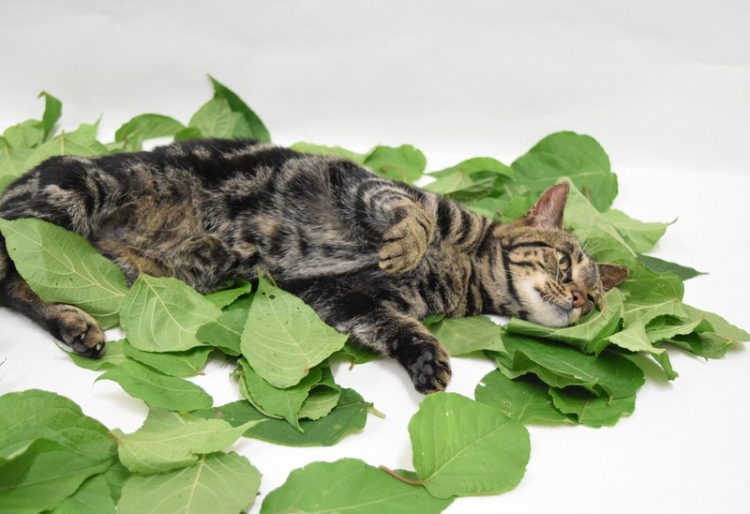
Until a recent study was published by a group of Japanese researchers led by biochemistry Professor Masao Miyazaki of Iwate University’s Faculty of Agriculture, there was no hard evidence that silvervine (matatabi) was safe and non-addictive to domestic cats. Although the general consensus was that it is a safe and a mild hallucinogenic which domestic cats can enjoy in the way they enjoy catnip. The two are very similar.
What does AI say about silvervine?
In fact, before writing this article I asked an artificial intelligence computer whether silvervine was safe and non-addictive to cats and the response was that “silvervine is generally considered safe for cats [but] it’s important to note that individual sensitivities may vary”.
New Japanese research confirms it is safe and non-addictive
So, there was some uncertainty about silvervine but now we can be certain because the Professor and his team of Reiko Uenoyama, Sae Ooka, Tamako, Miyazaki, Hiroki Mizumoto, Toshio Nishikawa, Jane L. Hurst – have concluded that repeated exposure to the complex iridoids contained within silvervine leaves do no “affect biomarkers of hepatic or renal injury”. In other words, it neither harms the kidneys nor the liver. And they added that: “The feline iridoid response shows no hallmark of addiction or stress”.
There testing showed that domestic cats “show a strong response to dried silvervine leaves with complex iridoids.”

Iridoids
Iridoids are a type of chemical compound found in various plants. They produce a range of biological activities. They can be antimicrobial, anti-inflammatory and antioxidant. They also have anti-cancer properties. They can be used as a herbal remedy. Among plants, iridoids help to protect plants against herbivores and pathogens. They have a bitter taste and deter animals from feeding on the plan. Note: this bitter taste doesn’t seem to deter domestic cats from chewing silvervine.
Iridoids have been researched because they have potential therapeutic applications. They’ve been tested as a treatment for cardiovascular disorders and neurodegenerative diseases. Further research is ongoing.
There was a time when even the experts were concerned that when domestic cats become intoxicated after coming into contact with silvervine that it might become addictive.
When given silvervine cats like to lick and chew it. For many years it has been possible to buy dried silvervine fruit in branches at pet stores. The presumption was that it is entirely safe. The tests confirm that this is true.
The research
The researchers used a 17 cats in their experiments. They were non-harmful experiments. The silvervine reaction increased the blood concentration of a substance that works in brains when they feel happy. Further, when the ingredient was rubbed on cats’ bodies it acted as a mosquito repellent. Catnip has the same qualities.
The researchers decided that if silvervine was addictive and the cat became dependent upon the active substance, the cats would stay in contact with the extract of the active chemical. However, they only stayed in contact with or responded to the extract for about 10 minutes. And over time they lost interest. They concluded there was no dependence.
As for the potential toxicity of silvervine, they looked into possible liver and kidney damage indicators in 13 cats given silvervine for up to about three years. They tested blood samples and all the indicators remained at normal levels even after they had just been given the plant. They say that there “was apparently no statistical tendency for the values to increase even after a long period of silvervine reactions”.
The professor said:
“For the first time, we are able to demonstrate the scientific basis for giving silvervine to cats with peace of mind”.
Professor Masao Miyazaki
He added that it is “highly safe, with positive effects on cats.”
To return briefly to my artificial intelligence assistant and their response to the question as to whether it is addictive or not. They said that it was unlikely to be addicted. As you can see there was some uncertainty in their response. We can now say with certainty that it is non-addictive.
My thanks to The Mainichi, Japan’s National Daily Since 1922.

